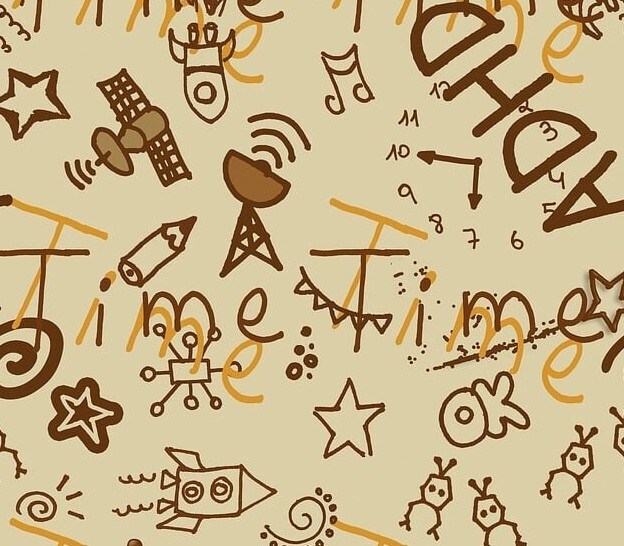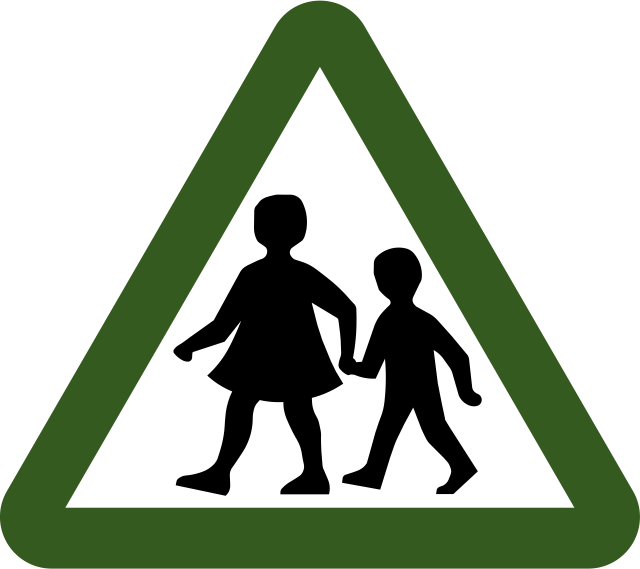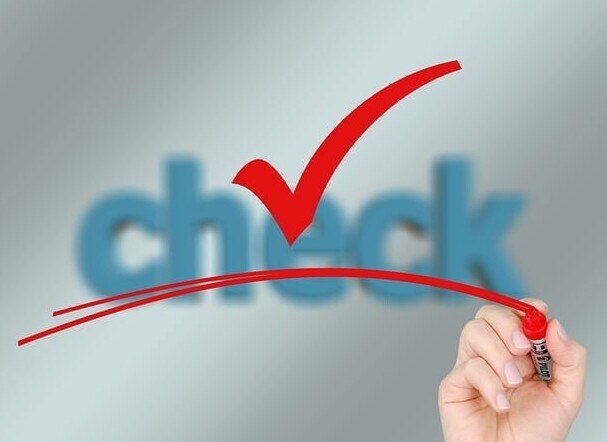Perhaps you’ve heard about CBD as an option if you’re seeking unconventional approaches to managing ADHD in children. Given that more parents are using unconventional methods, it makes sense to look at CBD for kids with ADHD and the possible advantages. Is it safe? How well does it work to manage symptoms of ADHD in children?
Here we will look at the basics of ADHD, how CBD functions, the connection between ADHD and CBD, and the most recent data on CBD’s safety. Learn what parents should know from experts before attempting CBD so they may make an educated decision.

Understanding Kids with ADHD
One of the most prevalent neurodevelopmental problems affecting children is ADHD (attention deficit hyperactivity disorder).
It affects focus, impulse control, and sometimes behaviour. Kids with ADHD often struggle with attention, hyperactivity, or both, which can impact their daily lives and relationships.
Understanding the symptoms and treatment options for ADHD is essential for finding the best way to support your child. Let’s look at an overview of the key symptoms and the traditional treatments available. This will give you a solid foundation before exploring alternative options like CBD.
Common Symptoms of Kids with ADHD

Although there are many ways that ADHD presents itself, there are a few typical signs in kids that you should be aware of.
Lack of Focus: Kids with ADHD often struggle with focusing on tasks, especially those demanding extended attention, and are frequently distracted
Hyperactivity: Hyperactivity is a common symptom in kids with ADHD, characterized by constant movement, fidgeting, and difficulty staying still. This can hinder their ability to complete assignments or sit through meals.
Impulsivity: Your child may exhibit irrational behaviour, disrupt others during talks, or struggle to wait their turn. Sometimes, this inability to control one’s impulses might cause issues at school or in social situations.
It’s important to remember that not all children with ADHD exhibit the same behaviours. ADHD affects over 6.1 million US children, with varying behaviours. Identifying ADHD early and implementing supportive systems can help children cope with symptoms, ensuring they receive the best possible care.
Traditional Treatments for Kids with ADHD
Behavioural therapy and medication are often used in combination with traditional treatments for ADHD. Stimulants such as amphetamines (Adderall) and methylphenidate (Ritalin) are the most commonly prescribed drugs. These medications function by increasing levels of specific brain chemicals that aid in improving focus and reducing impulsivity.
Stimulants: According to the CDC, stimulants are beneficial for 70-80% of kids with ADHD, but may cause sleep issues, appetite loss, and mood swings, necessitating continuous dosage and drug adjustments.
Non-stimulant medications: Non-stimulant drugs like atomoxetine (Strattera) are used when stimulants are ineffective or have undesirable side effects. Some children may respond better to these drugs.
Behavioural Behavioural Behavioral therapy is an important part of ADHD treatment, focusing on teaching children to manage symptoms through social skills development, time management, and positive reinforcement.
Families often opt for a combination of medication and therapy, but some explore alternative avenues such as CBD if traditional methods don’t meet their needs.
What is CBD and How Does It Work?
CBD (cannabidiol), a non-psychoactive compound found in cannabis plants, is being explored for potential therapeutic benefits, particularly in managing conditions like anxiety, and pain, and for kids with ADHD.
It’s important to have an in-depth understanding of CBD’s role in the body, its differences from other cannabis compounds, and why it’s growing in popularity as an alternative management option.
CBD’s Effects on the Body’s Endocannabinoid System
CBD regulates mood, sleep, and attention through the endocannabinoid system (ECS), a network of receptors and enzymes, thereby maintaining body balance or homeostasis.
CB1 and CB2 are the two primary receptor subtypes found in the ECS. CBD indirectly influences CB1 and CB2 receptors in the ECS, enhancing the body’s ability to use its cannabinoids.
This interaction can lead to reduced anxiety, improved focus, and even better impulse control—issues that many kids with ADHD struggle with. CBD may help manage ADHD symptoms by modulating dopamine brain processes.
The endocannabinoid system’s ability to impact such a wide range of functions is why CBD is being studied for its potential benefits in conditions like ADHD. However, it’s important to consult a healthcare provider due to individual reactions to cannabinoids.
Differences Between CBD and THC
THC and CBD, both found in cannabis plants, differ significantly in their psychoactive effects. THC elicits a “high” through its direct attachment to CB1 receptors in the brain.
CBD, unlike THC, is non-psychoactive and indirectly influences the endocannabinoid system, making it an appealing alternative for parents seeking stress-free management without the mind-altering effects.
Another big difference is that CBD with less than 0.3% THC is legal in most states, whereas THC is illegal in many places. This is important when choosing a product for children.
Understanding these differences makes it easier to understand why THC is usually not advised for children, while CBD is being investigated for conditions like ADHD. While both substances have potential medical use, their functions are entirely different.
The Connection Between CBD and ADHD Management
CBD has become known as a possible choice for ADHD patients as more parents look for alternatives to conventional therapies. Even while studies and anecdotal evidence are still in the early stages, they seem to indicate that CBD may be able to aid with symptoms including impulsivity, hyperactivity, and attention problems.
Let’s look at the most recent findings regarding CBD for Kids with ADHD and whether or not it is a practical management option. Making an informed decision about whether CBD might benefit your child will be easier if you know this link.
Can CBD Help with ADHD Symptoms in Kids?
Research is being done to see if CBD can benefit children with ADHD symptoms, particularly those who do not respond well to traditional therapies. Following CBD use, some parents have noted improvements in their child’s hyperactivity, attention, and impulse control. Still, research on this is in its early phases, and additional studies are required to verify its effectiveness.
What is known is that CBD affects the endocannabinoid system in the body, which controls behaviour and attention. According to some research, CBD may lessen anxiety and elevate mood, which may have an indirect effect on kids with ADHD.
Recent Studies on CBD for ADHD
Recent studies on CBD for ADHD are beginning to shed light on its potential benefits, though research is still limited.
CBD for Kids with ADHD: A noteworthy study was published in the Journal of Child and Adolescent Psychopharmacology ( that looked at the effects of CBD on kids with ADHD. The study discovered that CBD may help lessen symptoms such as hyperactivity and impulsivity; however, the group was small, and additional research is required to draw firm conclusions.
CBD for Adults with ADHD: A study published in Frontiers in Pharmacology found that CBD may help manage ADHD symptoms in adults by regulating anxiety and mood. While this study wasn’t focused solely on children, it provided some insights into how CBD might affect attention and behaviour.
Neurodevelopmental disorders: A review evaluating the potential of several cannabinoids, including CBD, to manage neurodevelopmental disorders including ADHD was published in Current Neuropharmacology in 2023. The study made clear that more large-scale, controlled trials focusing on pediatric ADHD are required but the preliminary data are encouraging.
These recent studies suggest CBD may help manage ADHD symptoms, but further research is needed. Consultation with a healthcare provider is necessary before using CBD for a child’s specific needs and to ensure safety.
Is CBD Safe for Kids with ADHD?

As interest in CBD as a management option for ADHD grows, many parents are asking about its safety for children.
What is currently known about the safety of CBD for children with ADHD? Learn about potential benefits, risks, and guidelines, helping you decide whether CBD could be a safe option for your child.
Potential Benefits and Risks of CBD Use in Children
It’s important to assess the advantages and disadvantages of CBD for kids with ADHD.
Potential Benefits: CBD may improve ADHD symptoms by regulating the endocannabinoid system, and improving attention and behaviour in children. Preliminary research suggests CBD may lower anxiety in ADHD kids. It is non-psychoactive, and well-tolerated, making it a desirable alternative to traditional drugs that may have serious side effects.
Potential Risks: Despite its potential benefits, CBD use in children comes with risks. Although usually minor, side effects may include gastrointestinal problems, appetite changes, and tiredness. Consult a healthcare professional to avoid negative interactions with other drugs. The long-term effects on children due to limited research on adults and animals are not well-documented.
The safety of CBD for kids with ADHD is still being studied. Evidence suggests it may be useful but medical supervision is essential.
Guidelines for Parents Considering CBD for Kids with ADHD
The safe and efficient use of CBD for managing ADHD in children can be ensured by following specific guidelines.
Consult with a Healthcare Provider: Before using CBD, consult a healthcare provider who is knowledgeable about ADHD and CBD. They can provide personalized advice, avoiding potential interactions or side effects.
Choose High-Quality Products: Choose CBD products that have undergone third-party testing to ensure purity and potency. To ensure accurate CBD content and confirm the absence of impurities, look for items with a Certificate of Analysis (COA) label. Products with full-spectrum or broad-spectrum CBD may be better since they have a broader range of cannabinoids, which may increase effectiveness.
Begin with a Low Dosage: As you see your child’s reaction, slowly raise the amount. This helps to find the optimal dosage for minimal side effects and maximum benefits.
Monitor and Document Effects: Keep a detailed record of your child’s CBD use, behaviour, and side effects to evaluate its effectiveness and adjust dosage as needed.
Stay Informed: Keep updated on the most recent findings and recommendations regarding the use of CBD in children. Since the field is developing quickly, new research may impact suggested approaches.
Bottom Line on CBD for Kids with ADHD
As parents explore various options for managing ADHD in their children, CBD has gained attention for its potential benefits.
Research on CBD and the management of ADHD in kids including expert opinions and key insights, help parents navigate the complexities of CBD and its role.
Expert Opinions on CBD for Kids with ADHD
This emerging field is complex and expert opinions about CBD as a therapeutic option for ADHD in children are varied. A lot of medical professionals agree that CBD can help with some symptoms, including anxiety and hyperactivity. If CBD is taken under medical supervision for kids who don’t respond well to traditional medications, some pediatricians are willing to consider it.
The American Academy of Pediatrics emphasizes the importance of safety in using CBD products, citing a lack of extensive studies on long-term effects in children.
Neuroscientists suggest more research is needed to understand CBD’s impact on ADHD symptoms. They advise parents to do their research and consider CBD as a supplement to traditional therapy and to remember each child will react differently. Despite increased interest, caution and consultation with an experienced healthcare provider are advised.
What Parents Need to Know Before Trying CBD for Kids

Before trying CBD for kids with ADHD, there are several important factors parents need to consider, to ensure a safe and informed experience.
Understand the Legal Implications: CBD laws vary by state and country, but generally, hemp-derived CBD products with less than 0.3% THC are legal, so checking local regulations is important.
Recognize the Lack of Regulation: The unregulated CBD market offers varying product quality; opt for brands with third-party lab testing and a Certificate of Analysis (COA) for purity and potency.
Consult Healthcare Professionals: Consult your child’s pediatrician or a healthcare provider with experience in cannabinoid therapies to determine if CBD meets their specific health needs and current treatments.
Be Aware of Possible Side Effects: CBD is generally safe for children, but they may experience side effects like drowsiness, appetite changes, or gastrointestinal issues, so monitoring them closely is necessary.
Set Realistic Expectations: CBD is not a guaranteed ADHD solution; its effects vary among children, so setting realistic expectations can help manage hopes and experiences.
By keeping these key points in mind, you can make a more informed decision about whether CBD is a suitable option for your child’s ADHD management.
Conclusion
Research into CBD’s possible advantages for kids with ADHD is a developing topic giving parents looking for alternatives a brighter prospect. Although preliminary studies indicate that CBD may help control symptoms like impulsivity and hyperactivity, it’s important to practice caution when using CBD
Consulting with healthcare professionals, choosing high-quality products, and monitoring your child’s response, will help you make informed decisions about adding CBD to their management plan. Staying informed on the newest CBD research results will enable you to understand the complexity of managing kids with ADHD.
The most important factor in any option should always be your child’s safety and well-being.
For further reading on ADHD, check out CBD Magic Canada and Healing Natural Oils.

Since 1994, I have suffered on and off with chronic pain as a result of degenerative joint changes in both my hips and knees. After refusing traditional pharmaceutical prescriptions as I felt they were invasive to my body, I started researching CBD products, specifically oils and medical marijuana products. I am happy to say that I have been taking them for over 3 years with tremendous success!

